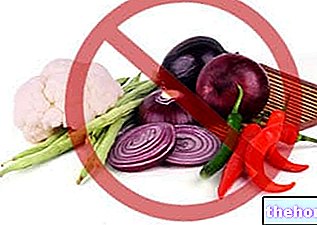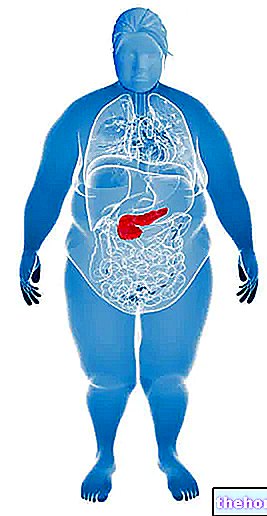Many adults could suffer from an excessive secretion of cortisol, who nevertheless ignore their condition. This is because in recent decades there has been an exponential increase in the load of stress. In addition to the above, economic crisis, reduction of the supply. of work, increased taxes and prices have created a much higher burden than our stress management capacity.
Among the problems associated with the chronic stress of Western man (in addition to insomnia, nervous exhaustion, bipolar disorder / mood swings, etc.) there is the predisposition to weight gain, resulting in overweight or obesity and complications including in the most serious forms metabolic syndrome appears.
The most obvious advice, in case of chronic stress and consequent hyperadrenalism, is to change your living conditions (work, family situation and removing the various stressors, at least the main ones) where possible. But since in 90% of cases this is clearly not feasible, here we go to the doctor - or, in the worst case scenario, we vent into smoking, alcohol abuse and so on.
Below we will talk about how to manage nutrition to avoid stress negatively affecting weight, body composition and metabolic efficiency.
is, almost par excellence, cortisol - even if it is not the only one, we mention for example prolactin. Among the various metabolic effects of this chemical mediator we recognize a hyperglycemic, glycogenolytic influence, therefore opposite to insulin, similar or complementary to glucagon and catecholamines.
Based on circadian rhythms, cortisol is highest in the morning and then gradually decreases by the afternoon; this is true regardless of external and dietary influences. In a stressed subject, the level will be even higher than the physiological one, with a consequent tendency to raise the blood sugar already in the fasting state and difficulty in muscle growth or recovery (if the subject plays sports). Furthermore, always in the context of body composition, it should be specified that two diametrically opposed actions on adipose tissue are attributed to cortisol, to which it is still difficult to attribute a logic: an increase in lipolysis and an increase in liposynthesis. In practice, in certain circumstances it facilitates the mobilization of fats and in others it optimizes the accumulation of fat. What is certain, however, is that the adipose accumulation in conditions of high cortisol is concentrated in the abdominal area, resulting in an android conformation.
But be careful, the fluctuations in blood sugar due to stress (and therefore to cortisolemia) should not be interpreted as a pathological form - for example of "insulin resistance or" glucose intolerance - but as possible slight glycemic changes that in the long term can have a significant impact.
A person with hyperglycemia who eats a high-carbohydrate breakfast may be making a mistake by raising their blood sugar even further. However this is not said. Since cortisol and insulin are essentially antagonists - the former is hyperglycemic and is secreted when blood glucose is low, while the latter is hypoglycemic and is released when blood glucose rises after meals - a food stimulus could trigger insulin release, block release of cortisol and restore homeostasis.
without food., on the other hand, they also break down the reserves of fat and carbohydrates. Therefore, if we pay attention to maintaining the nitrogen balance and to adequately stimulate insulin with the right amount of calories at a time - especially from carbohydrates - this picture could play in favor of weight loss.
To maintain the nitrogen balance, it is necessary to guarantee the correct intake of proteins, possibly with a high biological value, and to take care to carry out weightlifting workouts dedicated to hypertrophy, which force the body to preserve muscle mass - at this point considered indispensable, not a simple aesthetic goal.Lean mass is in fact also important to keep metabolism high, testosterone and endorphin production and to reduce the chances of gaining weight.




























